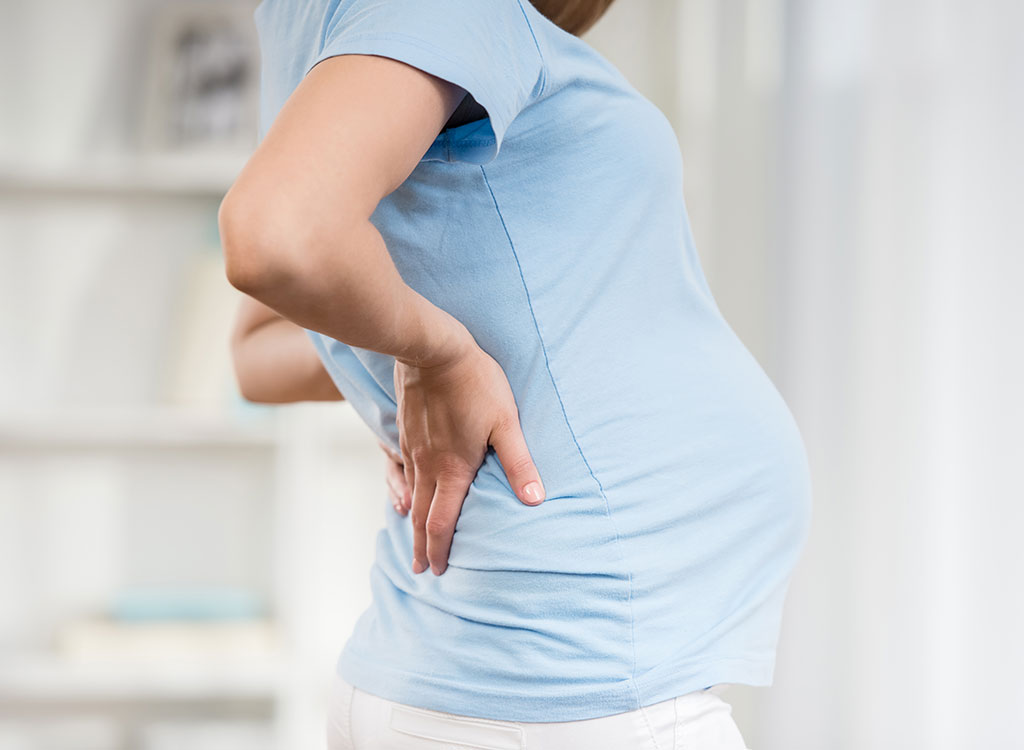Common Discomforts During Pregnancy and How to Avoid Them | woombie.com

Expecting mothers have a lot on their minds, from how their delivery will go to even the future of their child. During pregnancy, many women also experience issues of anxiety, discomfort, and pain. Pregnancy can affect all women differently too, as seen in What to Expect When You're Expecting - the hit movie on DIRECTV STREAM. However, there are tons of options out there to relieve and even avoid common pregnancy discomforts.
Morning Sickness
Morning sickness is known as the famous nausea and vomiting that a lot of pregnant women face during their first trimester of pregnancy, whether this sickness comes during the morning or later in the day. This issue is very common and can sometimes be felt well into the second trimester as well.
While the root cause of morning sickness is not well known, it is thought that hormonal changes are to blame.
How to Avoid: Some experts recommend pregnant women consume more potassium, magnesium, and vitamin B6 during pregnancy to combat this discomfort. Bananas are famously rich in potassium while nuts and seeds can provide high levels of magnesium. Many types of meat can satisfy vitamin B6 levels while leafy greens contain high levels of potassium, magnesium, and vitamin B6.
Backaches
While morning sickness often affects the beginning of a woman's pregnancy, backaches often worsen toward the end. Backaches in pregnancy are caused by both the strain of the growing baby's weight on a woman's spine as well as an increase in hormones that relax the body's ligaments to prepare for labor.
While backaches are difficult to avoid, they can be eased.
How to Avoid: Women who sit with a straight posture, sleep on their sides with a pillow between their legs, wear shoes with arch support, and do not perform heavy lifting often have decreased back pain. Some women also do regular back stretches during pregnancy or wear a supportive maternity belt to ease the pain.
Frequent Urination and Constipation
Higher production of hormones may be to blame for frequent constipation that comes with pregnancy in many women. Frequent urination may also be caused by the body's higher production of fluids plus the weight of the uterus pressing on a woman's bladder.
How to Avoid: While these issues may not be completely resolved during pregnancy, they can be eased, specifically by eating a healthy, fiber-rich diet and participating in daily light exercise. This will make it easier to pass a bowel movement, thus easing constipation, though it may be harder to ease frequent urination. Some experts recommend staying away from caffeine, leaning forward when you pee, and drinking fluids during the day as compared to night to cope with frequent trips to the washroom.
Changes to Hair and Skin
A lot of women notice their hair becoming thicker or changing texture during pregnancy, and this is because the body produces more of the estrogen hormone, which makes hair follicles take longer to naturally fall out. Other women may notice their hair becoming thinner or even falling out much more frequently, and this may be a sign of a hormonal imbalance or miscarriage, both of which are issues that should be addressed by a doctor immediately. Additionally, some women may experience chloasma or dark patches that develop on the face during pregnancy, or stretch marks on the abdomen, thighs, and breasts as a result of weight gain.
How to Avoid: While changes to hair thickness and texture are unavoidable in most cases, some women like using chemical-free hair dyes and treatments during pregnancy to reverse this. As for changes to the skin, it is recommended that pregnant women, regardless of skin shade, wear a heavy SPF sunscreen every day during pregnancy to avoid sunburn, which can cause deep harm to skin cells, and discoloration, like chloasma. Stretch marks are also common, usually found in nine out of 10 pregnancies, and will lessen in appearance after pregnancy. While you will want to avoid any practices or use of creams harmful to your baby during pregnancy to reduce stretch marks, you may use oils or lotions designed to reduce the itching that often comes with stretch marks during pregnancy.
Leg Cramps and Swelling
Some women experience frequent leg cramps, particularly cramps in the calves, during pregnancy while others may also experience swelling in the feet, ankles, and lower legs. These are common issues that pregnant women face, and, while it is generally unknown why some women have frequent leg cramps, we know that swelling in the feet and ankles is usually caused by excess body fluids being pulled down by gravity throughout the day.
Leg cramps are usually eased by drinking more water, stretching and massaging the cramped muscles, and using a heat pack. Swelling is more difficult to take care of, but most pregnant women find that light exercise, elevating the feet, and limiting salty foods can help ease it.
Summary
Many discomforts come along with the journey of pregnancy, but they do not need to define it. In general, eating and exercising well can help you maintain a healthy pregnancy and, in turn, a healthy life after your baby is born.






